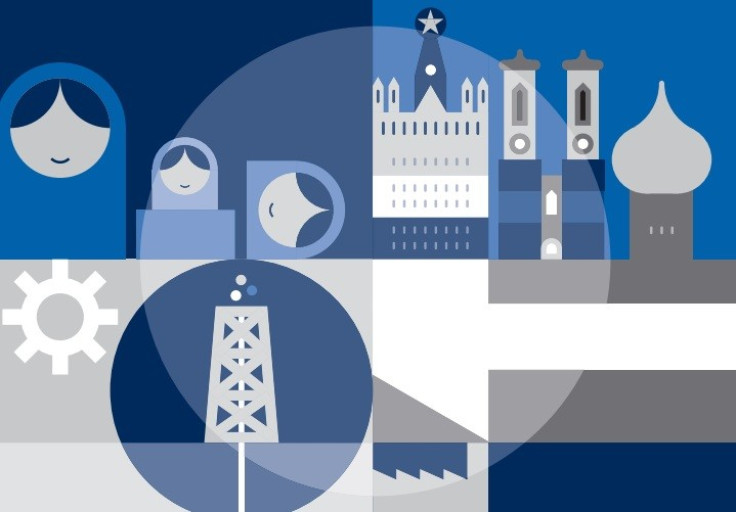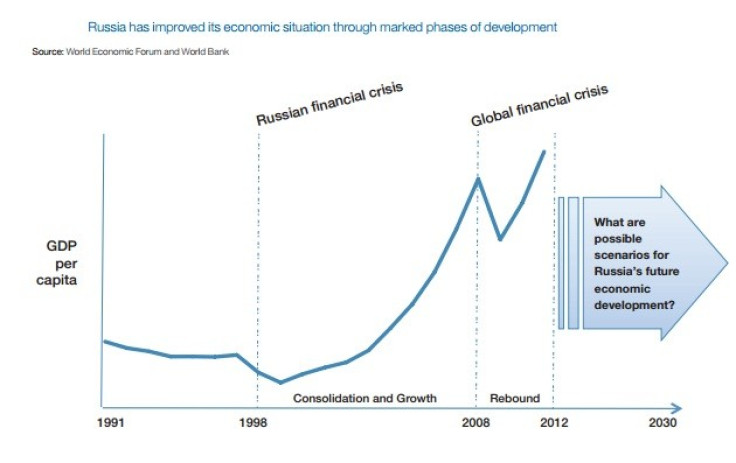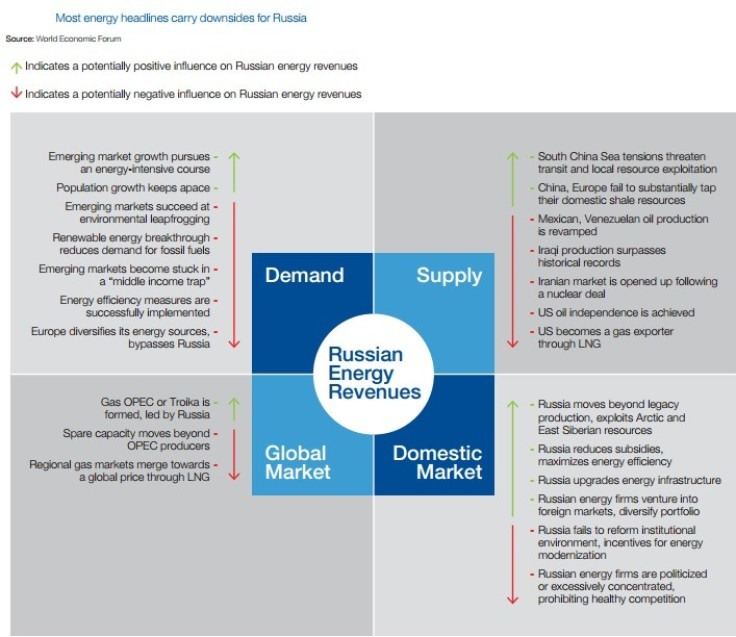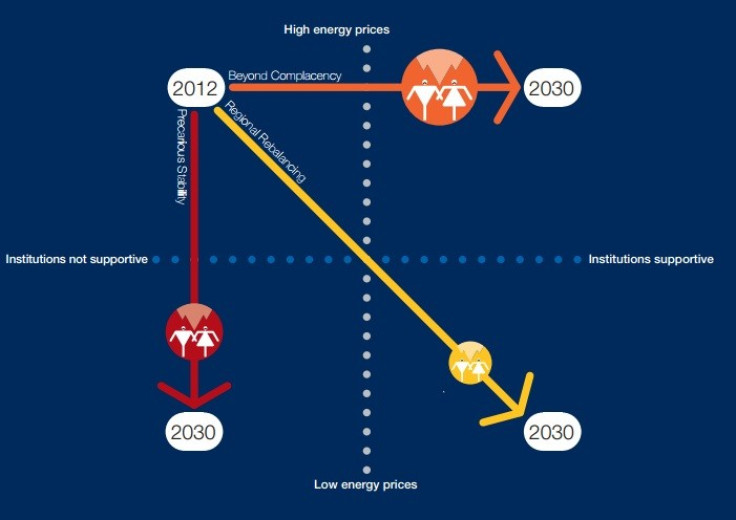WEF Paints Bleak Outlook for Russia's Economy

The World Economic Forum has cautioned that Russia's economy is at a crossroads and significant changes are needed in order to stabilise and sustain growth and prevent social unrest.
In WEF's benchmark Scenarios for the Russian Federation report, the group outlined three scenarios for the Russian economy, which all paint a bleak outlook unless significant changes in its domestic institutional environment are made as the country's GDP is so closely tied to oil prices.
Russia has enjoyed record growth rates and a dramatic rise in living standards for much of its urban population after the spectacular rise in oil prices from 2000 to 2008, in tandem with economic reforms of the early 2000s, fostered a more stable environment [Figure 1].

Despite being hit hard by the global economic crisis in 2008 and 2009, the country even managed to rebound from an 8 percent drop in the economy, within a couple of years.
But as IBTimes UK detailed in December last year, Russia faces a drop in 2013 GDP to 2.5 percent, from 3.4 percent in 2012. Forecasts also detail a 1.6 percent rise in inflation to reach 6.7 percent by the end of this year for Russia.
Supporting this, WEF says that this growth trajectory is not sustainable and significant challenges remain, particularly in reducing the country's strong reliance on its oil and gas exports and in revitalising the economy [Figure 2]

"The price of oil and gas on global and regional markets, and developments in the global energy landscape more generally, are critical to Russia's future economic development. For the most part, Russia is a price-taker and cannot mould the global energy environment in which it operates nor the energy prices that ensue," says the report.
"Yet a thorough analysis of the dynamics within the global energy landscape is important for Russia to maximise benefits while this external context is favourable, and prepare for less auspicious times in the future," it adds.

In each of its Three Scenarios for Russia [Figure 3], WEF identifies potential hazards for the country and says they can "be used to form new policies, new strategies and forging new connections, by freeing thought from past constraints."
In one of the scenarios, WEF warns that "a sudden and sustained drop in oil prices creates a crisis in Russia's economic foundations that threatens the country's social stability. Paralysed by the threat of popular resistance to cutbacks in entitlements and social spending, the government is compelled to strengthen its hold on the economy, using state companies as vectors of social spending.
"While compromising its fiscal position, Russia preserves at least the illusion of economic stability for most of its population. Eventually the sustainability of these measures comes into question and opens a range of uncertainties about the country's long-term economic future," it adds.
However, WEF adds that if Russia does not reform its institutions and finances in times of growth, doing so will be near impossible at a time of crisis.

Adding to WEF's concerns over Russia's dependency on energy for revenue, the report also outlined a "beyond complacency" scenario.
"Continuously high oil and gas prices lead to complacency about institutional reform, aside from specific measures to spur investments in the energy sector. While the success of the energy sector brings higher incomes to large parts of Russian society, discontent increases with inefficient public services and an unceasingly growing but inefficient state bureaucracy. A split in the elites eventually leads to a radical wave of institutional reforms," it says.
It warns that if Russia does not reform its energy sector incentives, this may prevent the country from benefiting even from its great oil and gas potential.
"While limited institutional reform in Russia's energy sector may postpone more difficult changes, only holistic institutional change can create long-term growth and stability. Contrary to the perception that high energy revenues are likely to enable sustained growth in the economy, they may also stimulate complacency about necessary institutional reforms beyond this sector," says the report.
Finally, in perhaps the most optimistic scenario for Russia, WEF says that political and economic change in Russia needs not necessarily come from the country's centre but peripheral regions can be drivers in their own right.
"Pockets of leadership driving institutional reform at a sub-federal level significantly change the business environment in some well-governed regions, in spite of stagnation in central institutions. A context of global resource scarcity enables some of these regions to grow quickly on the back of high investments in the agricultural sector and a range of associated value-chain products," it says.
However, it does emphasis that collaboration and understanding between Russia's centre and periphery are crucial to maximizing the potential of each.
© Copyright IBTimes 2024. All rights reserved.







